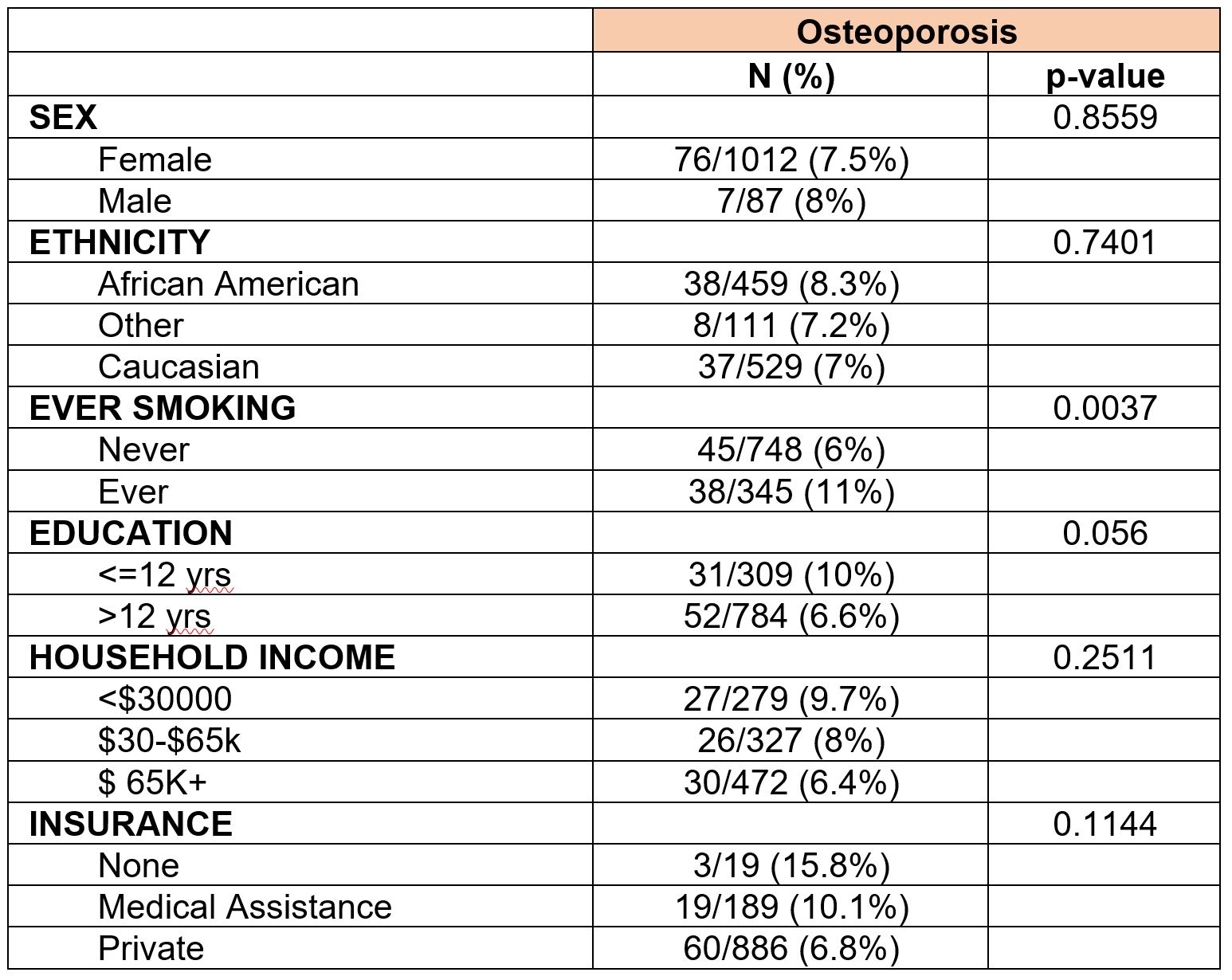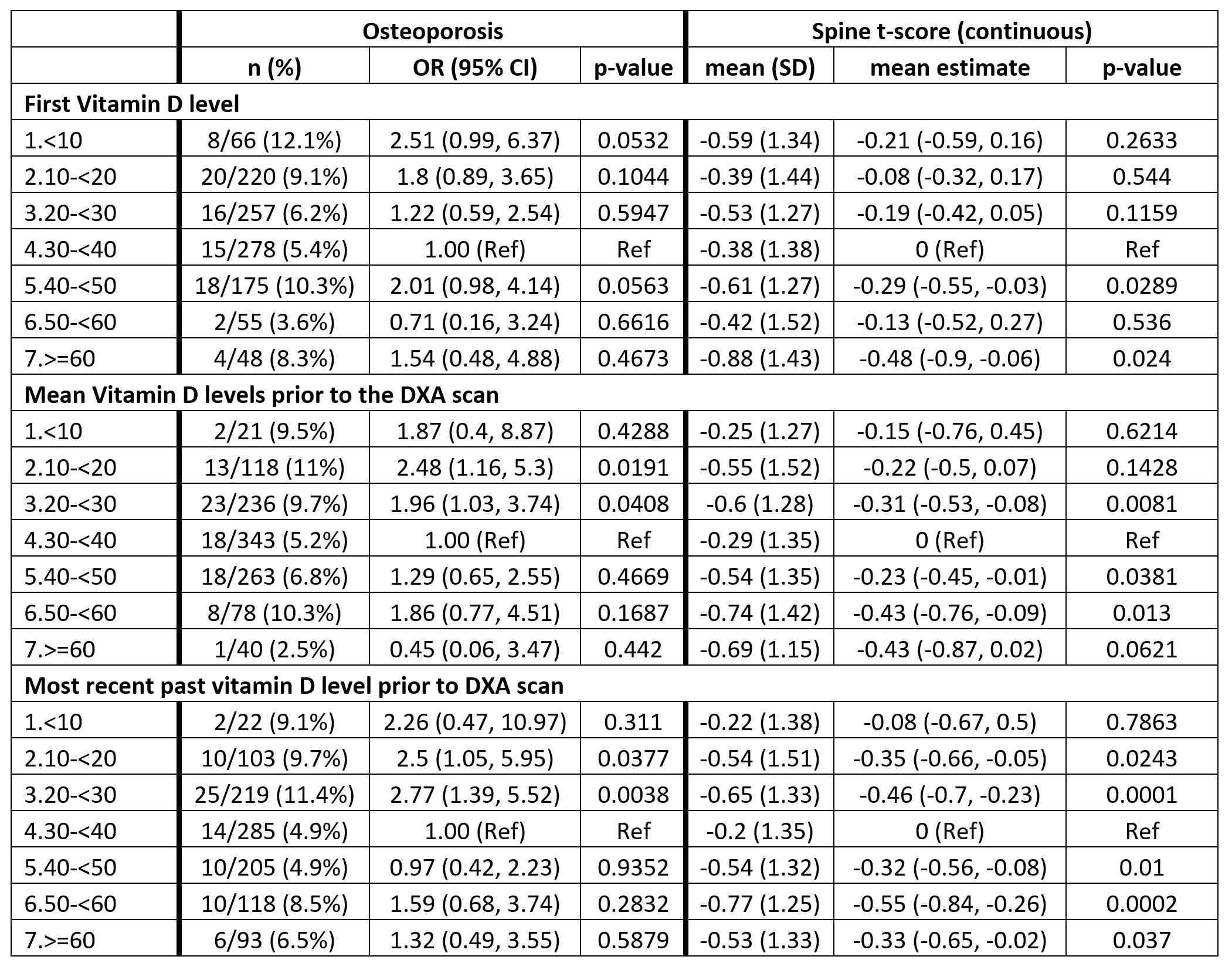Session Information
Date: Monday, November 8, 2021
Title: SLE – Diagnosis, Manifestations, & Outcomes Poster III: Outcomes (1257–1303)
Session Type: Poster Session C
Session Time: 8:30AM-10:30AM
Background/Purpose: Osteoporosis with fractures is consistently one of the top three items in the SLICC/ACR Damage Index in cohort studies internationally. As vitamin D insufficiency and deficiency are common in SLE, we asked whether 25(OH) vitamin D levels were associated with bone mineral density.
Methods: We took the first DXA scan after the first 25(OH) vitamin D blood level measurement. 1099 SLE patients (meeting SLICC or EULAR/ACR classification criteria) had a DXA scan done after a 25(OH) vitamin D measurement. We examined bone mineral density in two ways: 1) binary – osteoporosis or not; and 2) continuous variable of lumbar spine t-score.
Results: 1012 (92%) were female, 459 (42%) were African American, 529 (48%) were Caucasian. The mean age at their DXA scan after vitamin D level measurement was 45 years (SD=13.1). There were 83 patients with spine t-score < =-2.5. Table 1 shows demographic variables and their association with osteoporosis. Smoking was strongly associated. Next we looked at the first 25(OH) vitamin D, the mean, and most recent levels versus both osteoporosis AND the lumbar spine t-score (Table 2). These analyses showed a U-shaped relationship centered at 25(OH) vitamin D levels of 30-40. Both lower levels and some higher levels were associated with osteoporosis and with lower lumbar spine t-scores.
Conclusion: Vitamin D has a surprisingly paradoxical relationship to bone health in SLE. The Ideal 25(OH) vitamin D level appears to be 30-40 ng/mL. Vitamin D is not truly a “vitamin” but should be considered a sterol hormone, which may contribute to its complicated role in bone health. As 40 ng/mL is also the ideal level for renal lupus, this appears to be the best 25(OH) vitamin D target in SLE management.
 Table 1. Association of Patient Demographic Variables with Osteoporosis
Table 1. Association of Patient Demographic Variables with Osteoporosis
 Table 2. Association Between 25(OH) Vitamin D Level and Lumbar Spine Bone Density
Table 2. Association Between 25(OH) Vitamin D Level and Lumbar Spine Bone Density
To cite this abstract in AMA style:
Petri M, Li J, Goldman D. Paradoxical Effect of Vitamin D on Bone Mineral Density in SLE [abstract]. Arthritis Rheumatol. 2021; 73 (suppl 9). https://acrabstracts.org/abstract/paradoxical-effect-of-vitamin-d-on-bone-mineral-density-in-sle/. Accessed .« Back to ACR Convergence 2021
ACR Meeting Abstracts - https://acrabstracts.org/abstract/paradoxical-effect-of-vitamin-d-on-bone-mineral-density-in-sle/
